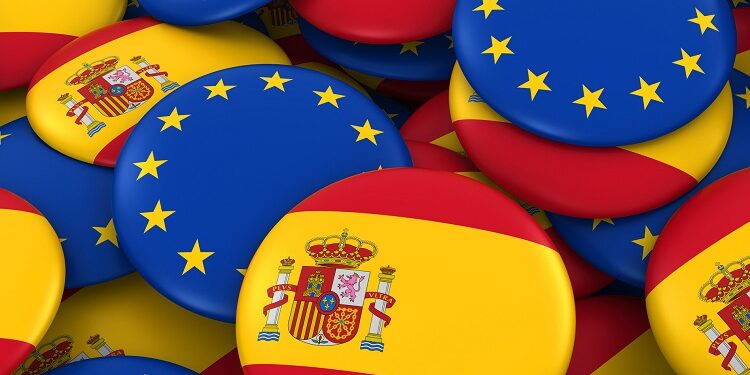The Diplomat
The Congress and the Senate approved in 2022 a total of 73 laws (organic laws, ordinary laws and royal decrees), 42 of which (57%) derived, in one way or another, from EU directives or decisions.
As reported last Friday by the European Parliament in a press release, 21 of these 42 regulations of European origin respond to the mandate to implement EU regulations or to the transposition into Spanish domestic law of directives adopted by the European Parliament and the Council.
These include some as significant as the Audiovisual Communication Services Directive, approved in 2018 to adapt to the new reality of the audiovisual market; the Directive establishing a single railway area for the EU, the Regulation on the new European Union Agency for Criminal Judicial Cooperation (Eurojust) or the Regulation containing the rules to be applied by Member States when designing their strategic plans to adapt to the new Common Agricultural Policy (CAP).
Throughout the year, the Spanish Parliament also approved, in response to the decisions adopted by the EU, several packages of measures aimed at alleviating the serious social, economic and energy consequences of the war in Ukraine, which were included in various laws and Royal Decree-Laws.
Other legislative initiatives approved, as a result of the application and transposition into Spanish law of European regulations and directives, are related to waste and contaminated soil, telecommunications, road transport workers, financial information to investigate criminal offenses, equal treatment and non-discrimination, Bankruptcy Law and Commercial Courts, Law for the creation and growth of companies, regulation of gambling or the mortgage loan market.
The remaining 21 regulations derive from recommendations, guidelines, programs or initiatives issued by the Council, the Commission or the European Parliament or other Community institutions. In other words, they follow the line of action set by the EU institutions. These legislative initiatives regulate matters related to the protection of vulnerable consumers, drought in the agricultural sector, the security of 5G communications, professional training, the electricity market, building rehabilitation, temporality in the Health Services, energy saving and efficiency, the transitional reduction of VAT on fuels and the protection of energy and gas consumers.
This is the third consecutive year in which the European Parliament Office in Spain presents these figures, which reflect the influence of European decisions on national policy. In the four preceding years, the percentage of Spanish laws derived from European directives and decisions ranged from 42% in 2019, 50% in 2020, 51% in 2001 and 57% in 2022, the year with the highest record of laws with European origin since this study began.
The regulations of European origin approved in these years affect issues such as business secrets, intellectual property, real estate credit, the financial field, terrorism, trade in greenhouse gas emission rights, VAT tax harmonization, energy efficiency, harmonization of tax dispute resolution in the EU, tax avoidance, money laundering, enhanced cooperation for the creation of the European Public Prosecutor’s Office, the food chain or the Omnibus Law transposing European Directives.
“For the third consecutive year, the study by the Office of the European Parliament in Spain confirms that more than half of the legislation passed by the Spanish Parliament is of European origin,” said Jaume Duch, Director General of Communication and Spokesman of the European Parliament. “The data confirms that European integration is not an aspiration of the Community institutions, it is a reality that influences the day-to-day life of citizens,” he continued. “This interdependence between national and European policies is, precisely at a time of economic, energy and social crisis such as the one we are going through, more necessary than ever,” he concluded.







